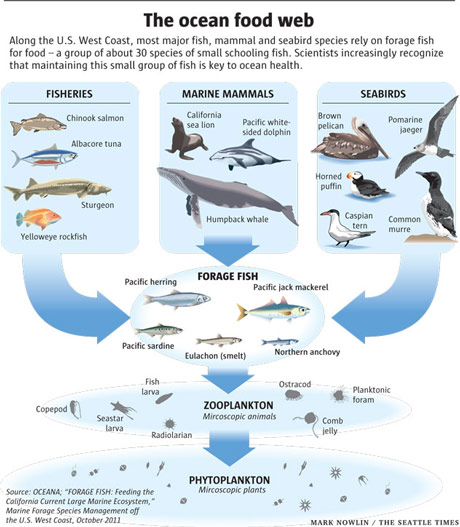Earlier this week Michael Snyder warned that the bottom of our food chain is going through a catastrophic collapse with sea creatures dying in absolutely massive numbers. The cause of the problem is a mystery to scientists who claim that they can’t pinpoint how or why it’s happening.
What’s worse, the collapse of sea life in the Pacific Ocean isn’t something that will affect us several decades into the future. The implications are being seen right now, as evidenced by an emergency closure of fisheries along the West coast this week.
On Wednesday federal regulators announced the early closure of sardine fisheries in California, Oregon and Washington. According to the most recent data, the sardine populations has been wiped out with populations seeing a decline of 91% in just the last eight years.
Meeting outside Santa Rosa, California, the Pacific Fishery Management Council voted to direct NOAA Fisheries Service to halt the current season as early as possible, affecting about 100 fishing boats with sardine permits…
…
The action was taken based on revised estimates of sardine populations, which found the fish were declining in numbers faster than earlier believed…
The council did not take Wednesday’s decision lightly and understood the pain the closure would impose on the fishing industry, said council member Michele Culver, representing the Washington Department of Fish and Wildlife. She added that it was necessary because a new assessment of sardine stocks showed they were much lower than estimated last year, when harvest quotas were set.
Source: New York Times via Steve Quayle / ENEnews
Sardines, like honey bees, don’t seem important to the casual observer. But just like honey bees, which are experiencing their own colony collapse, they are critical to the propagation of the global food chain. The immediate effects can be seen on the creatures next in line:
… 90 percent of this year’s class of sea lion pups were starving for lack of sardines to eat.
“The sardine populations have crashed 91 percent since 2007,” he said after the vote. “We would have liked to see this happen much sooner, but now we can start to rebuild this sardine population that is so important to the health of the ocean.”

